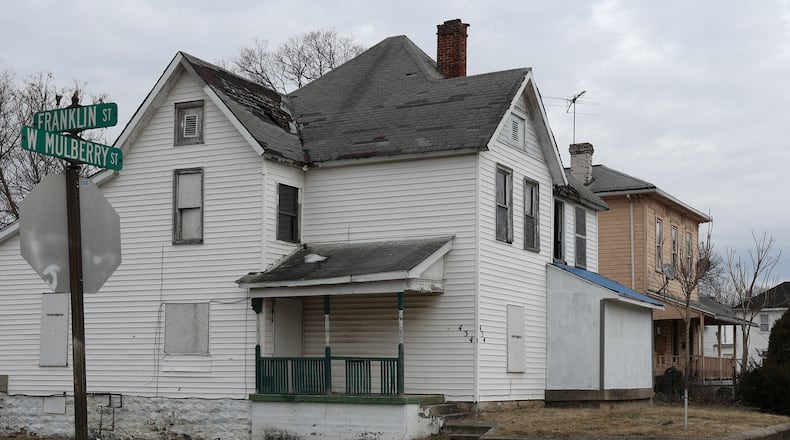The focus is on residential tax abatements that prevent homeowners, who increase the value of their homes via improvements, from paying taxes on that investment.
Under the CRA, the city can award a 100% tax abatement to property owners who choose to build new, or improve existing, residential structures within the designated CRA areas.
The area that currently falls under the CRA encompasses the southside of the city and extends up to McCreight Avenue. The extension will take that northern boundary up to Home Road.
The intent of the zone is to incentivize residents to build, maintain or improve their properties within sections of the city as one of the ways to improve aging housing stock or rehabilitate properties.
A comprehensive housing market analysis conducted by the Greater Ohio Policy Center that focused on Springfield and was released in 2019 found that roughly half of the city’s housing units were built before 1949.
A recommendation made by the Greater Ohio Policy Center was to expand the community reinvestment area that encompassed half of the city, to the entire city.
The city has opted for an incremental change to their CRA tax map, said Springfield City Manager Bryan Heck. The city had decided in 2019 not to do a citywide or blanket CRA.
Instead officials opted for one that encompassed a little over half of the city and said that the extension voted on and approved this week is part of a strategy of incremental adjustments that specifically target and address city neighborhoods with aging housing stock.
The idea is to encourage and incentivize reinvestment into those existing homes and properties, Heck said.
However, for those living within the CRA, it does not mean a reduction in current property taxes. Market value increases are not exempt either and property taxes can still go up due to those factors.
“Nobody is having their taxes reduced by what we are doing.” said Springfield Commissioner Dave Estrop in terms of expanding the CRA. He said the abatement would impact those who improve their property, live within the city and apply for it through the Springfield City Manager’s office.
In terms of existing residential property, the abatement only pertains to an increase in home value resulting in home improvements and related projects.
Those who live with the reinvestment area will be eligible to apply for a tax abatement related to those projects and once approved, it will last for 15 years.
Those interested in applying for the abatement are asked to contact Bobby Bruno, the development project coordinator with the city of Springfield at 937-324-7300.
About the Author

